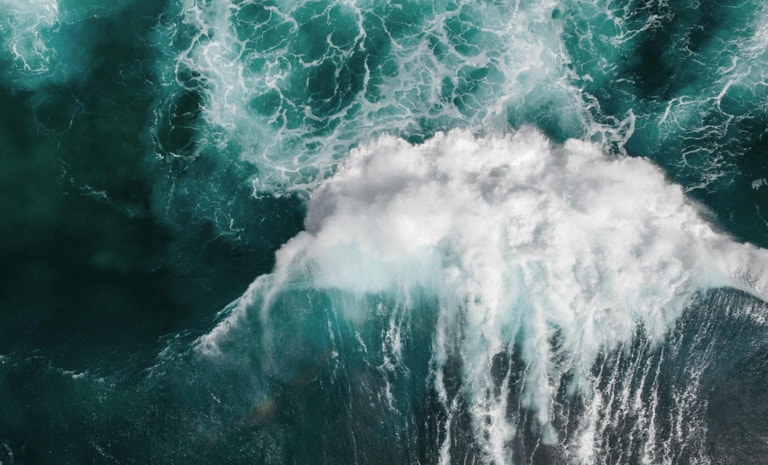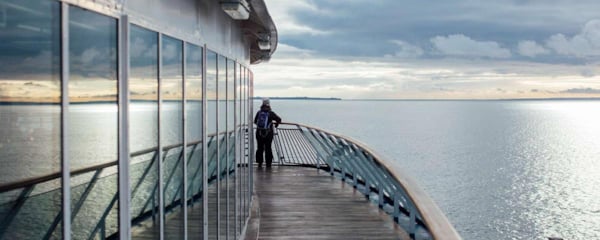
Risk management
Our risk management work is based on a risk map which is assessed and updated on a yearly basis. Part of our sustainability work involves the identification of areas of risk impacting ForSea’s operations, reputation and/or financial standing.
Risk management tasks are coordinated by the CFO and consist of the identification, analysis and evaluation of risks in conjunction with the relevant employees. Subsequently a list is made prioritising the risks to be reduced. This work is subject to ongoing monitoring and is reported yearly to the company’s senior management team.

Emissions – reducing our environmental burden
- Emissions from ferries into the water and into the atmosphere can have a negative effect on the local environment and also contribute to climate change.
Risk management
Emissions into the atmosphere can be eliminated completely by transitioning to battery power or minimised by using less environmentally damaging fuels and scrubber cleaning systems. Emissions into the water can be eliminated completely by making sure no grey or black water is discharged out to sea but instead is taken away at the ferry terminal and cleaned.
Safety for employees and passengers – zero accidents
- Inadequate safety or working environment measures can result in injuries to employees and passengers.
Risk management
The safety management system covers both employees and passengers and is based on legislation and directives on both the national level and those set by the EU and the UN agency IMO. ForSea has a so-called Designated Person (DP) who acts independently from the company management and board of directors and who is responsible for ensuring that the shipping company follows all safety regulations and directives. All policy documents and safety routines are collated in an SMS manual. This is available to all employees on the intranet and is updated continually. It is the responsibility of the relevant employees to stay up-to-date with the content of the manual. Depending on their area of responsibility, employees undergo a number of safety training sessions in order to be certified to work on board or ashore. Safety training sessions and practical exercises are continually updated and must be taken regularly during the employee’s term of employment.
Business ethics – combatting corruption
- Insufficient business ethics, corruption and internal or external fraud can damage ForSea’s name and business activities.
Risk management
Our Code of Conduct provides a series of guidelines in what constitutes good business ethics. In addition to the Code, we also have a number of policies and control mechanisms geared towards minimising the risk of fraud or bribery, both at an internal level and vis-a-vis external stakeholders. Our anti-corruption policy includes guidelines on giving and accepting gifts and guidance on how to behave when acting on behalf of the company.
There are also guidelines covering which employees can place and approve orders, and the thresholds at which approval is required.